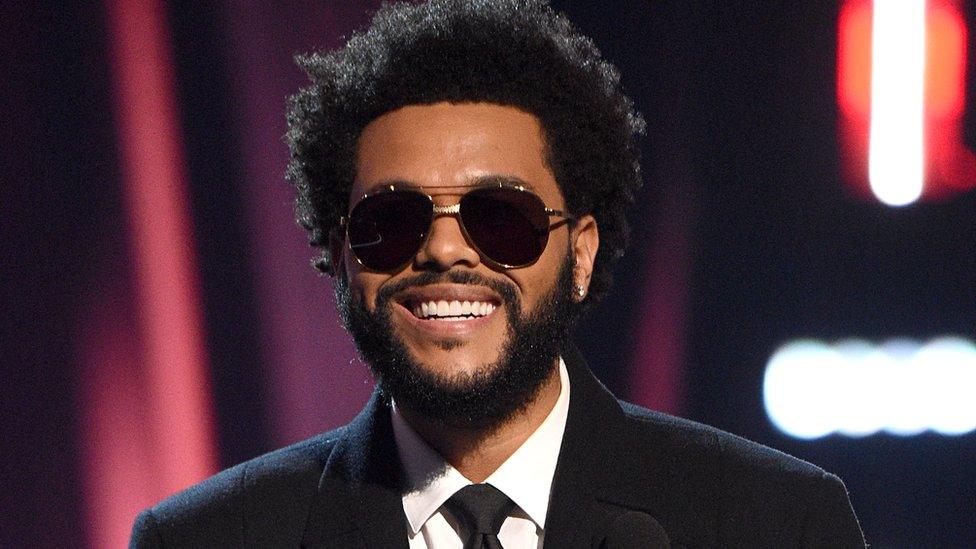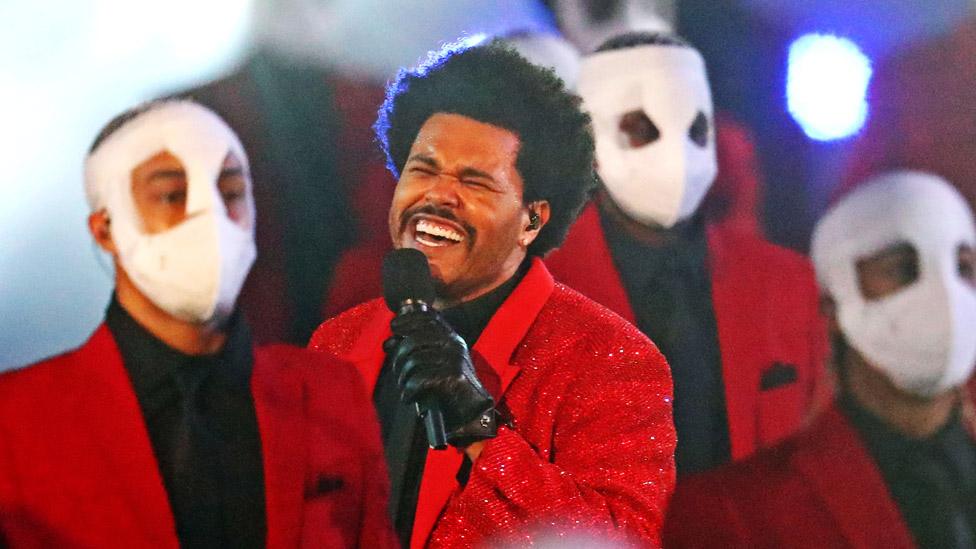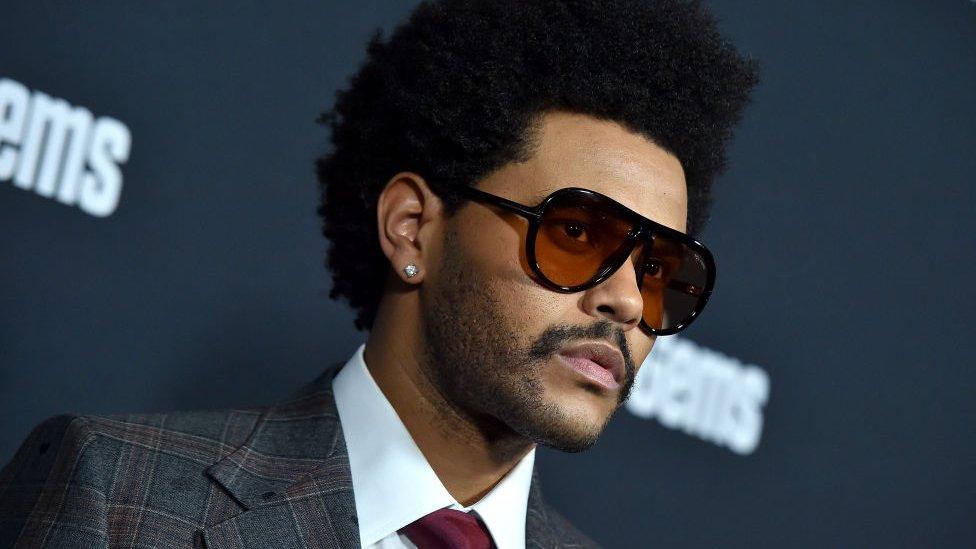The Weeknd settles copyright case over Call Out My Name
- Published

The Weeknd is one of the biggest recording artists of the last decade
Two musicians who sued The Weeknd claiming he'd stolen one of their songs say they have reached a settlement with the star to end the lawsuit.
Suniel Fox and Henry Strange said the singer copied an "atmospheric and melancholic" track called Vibeking to create his 2018 song Call Out My Name.
The two songs contained similar "lead guitar and vocal hooks" said their lawyer when the case was filed in 2021.
The Weeknd denied the claims. Terms of the settlement have not been disclosed.
"The parties are still in the process of formalising, executing, and consummating" the deal, said Fox and Strange's lawyers in a filing at Los Angeles federal court on Friday.
Call Out My Name was the only single released from The Weeknd's 2018 EP My Dear Melancholy, reaching the top 10 in both the US and UK.
Although it is in a different key to Vibeking, Fox and Strange - who perform as the electro-house duo Epikker - pointed out several similarities between the two songs.
"Both works are in a 6/8 meter that is less common in popular music," they said in their initial court filing.
"Both works are played at a similar tempo. And both works use features of electronica, ambience, pop, hip-hop, rock, and R&B to achieve a particularly atmospheric and melancholic sound."
Allow YouTube content?
This article contains content provided by Google YouTube. We ask for your permission before anything is loaded, as they may be using cookies and other technologies. You may want to read Google’s cookie policy, external and privacy policy, external before accepting. To view this content choose ‘accept and continue’.
Unusually for a copyright case, the musicians claimed to have evidence that The Weeknd had heard their song before writing Call Out My Name.
They said they had sent their track to The Weeknd's DJ and playback engineer Eric White in 2015, and cited an alleged email in which he recorded the star's response to the song as: "It's fire".
Almost a year later, White contacted Strange again. "I sent [The Weeknd] that track u made a while ago. He listened and liked it. But nothing ever happened," his email was purported to say.
Shortly afterwards, White allegedly sent another update, saying: "Just gonna tell [The Weeknd] that our production team wrote the track. Cool? Or u have another idea? Just don't wanna say 'hey, [Strange] wrote this' when he doesn't know u."
Strange responded to say that The Weeknd had met him "on [the] Drake tour" and "knows him".
Despite that, the musicians claimed, they were never asked for permission to use or license their song.
They had asked the court for a share in the song's past and future royalties, as well as coverage for their legal fees.
The Weeknd, whose real name is Abel Tesfaye, had denied the allegations but, as the case never came to trial, did not have the opportunity to respond to the case in detail.
Notifying the court of the settlement, Fox and Strange's lawyers asked for all future hearings to be cancelled and for the case to be dismissed.
The lawsuit had also named The Weeknd's co-writers, Adam Feeney and Nicolas Jaar, his producer Frank Dukes, record label Universal Music and streaming services including Spotify, Apple Music and YouTube.
- Published28 February 2023

- Published8 February 2021

- Published12 March 2021
